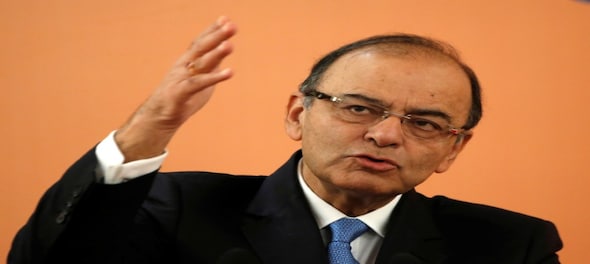
Arun Jaitley, who passed away last year, on this day, belonged to a small section among our political leaders who cut their teeth in politics while being students. Arrested for being on the wrong side of the regime when Indira Gandhi imposed the Emergency in June 1975, Jaitley was in his early twenties then. He had won elections to the Delhi University Students Union earlier.
In his passing away, just when he was 66 years of age, Jaitley was remembered for having been established as a lawyer even while staying on with the political outfit where he cut his teeth; he began with the Akhil Bharatiya Vidyarthi Parishad (ABVP) and went on to join the Bharathiya Jan Sangh and later the Bharathiya Janata Party (BJP). Jaitley did not stray into the various splinters of the Janata Party any time.
While there is not much evidence of his association with the political movements involving the students that preceded the Emergency, such as the campaign that Jayprakash Narayan launched and called it the Total Revolution, Jaitley’s arrival as the leader of the ABVP in the Delhi University at a crucial moment – just when the Emergency was declared – landed him with a political legacy of his own.
And yet, unlike the many others like him who turned to politics as their occupation soon after the Emergency and landed in Parliament or Legislative Assemblies in the various states they belonged to, Arun Jaitley opted for a career in law. He was not even 26 years of age when released from jail and elections were held in March 1977. That could have been why Jaitley did not end up as MP or MLA as did Lalu Prasad Yadav or Sharad Yadav or Ram Vilas Paswan or many others like them.
Well. Jaitley could not have planned it and known at the time he decided to set himself as a lawyer that he would end up as one of those with a roaring practice and where a lot of money could be earned as professional fees. He certainly would not have expected that in merely a decade he was going to be entrusted with the onerous task of preparing the case papers on the Bofors money trail; and drafting the letters rogatory to state establishments across Europe seeking information on the money trail.
When V.P. Singh, who rode to power riding on the campaign that the 155 mm field gun purchased by the Indian Army from the Swedish Gun manufacturer Bofors Inc. involved a lot of hanky panky deals and that money had changed hands here, there and everywhere, as Prime Minister looked for a lawyer who was also sufficiently motivated to work hard to unravel the details of the deal and locate corruption, Arun Jaitley happened to be his choice.
Jaitley, not even designated a Senior Lawyer then, was chosen to be made the Additional Solicitor General. He became both simultaneously. He had, by then, established a decent practice and essentially in aspects of corporate law. Jaitely, however, ended up studying the Bofors papers and working hard to put up as sustainable a case as could be on the scandalous aspects of the deal. It is another matter that all that began with him in 1989-90 came to stare at him towards the end of the Atal Behari Vajpayee regime, where Jaitley was left to handle the Information and Broadcasting portfolio.
Those who were sent up for trial in the Bofors case either died or managed to get acquitted. Jaitley must have felt bad but he too knew too well that the law was only one dimension and the system left gaping holes that could be exploited by those who knew them. Jaitley’s presence in the Rajya Sabha (and he could never win a Lok Sabha seat) as Leader of Opposition was conspicuous. He had earned his place in a future dispensation by standing up for Narendra Modi in the BJP’s national executive at Goa.
Well. Times change, to borrow from the title of Hope Cook’s memoirs; Cook happened to be the American who married Palden Thondup, the last Chogyal of Sikkim before the kingdom was merged into India in May 1975, about the time when Jaitley was arrested by the Emergency regime and held in jail. Jaitley did not show the same spirit he had expressed insofar as politics in the universities. As it happened he refused to speak up for anti-establishment politics in the universities. But then, this has been the norm of our times.
Jaitley will be remembered for being among the few in our political world who did not look at politics as a profession or did not seek their livelihood from politics. He earned his bread, butter and jam being a lawyer. And even those in the Bar who are his adversaries in the political world hold Jaitley in high regard.
This article was originally published on August 24, 2019, and is being republished on the first death anniversary of Arun Jaitley. V Krishna Ananth teaches History at Sikkim University, Gangtok.
First Published: Aug 24, 2020 2:41 PM IST
Check out our in-depth Market Coverage, Business News & get real-time Stock Market Updates on CNBC-TV18. Also, Watch our channels CNBC-TV18, CNBC Awaaz and CNBC Bajar Live on-the-go!


10% discount on fare on Mumbai Metro lines 2 and 7A on May 20
May 3, 2024 2:40 PM
'Rahul Gandhi deserted Amethi due to fear of Smriti Irani': How BJP plans to puncture Congress' UP plan
May 3, 2024 1:12 PM

